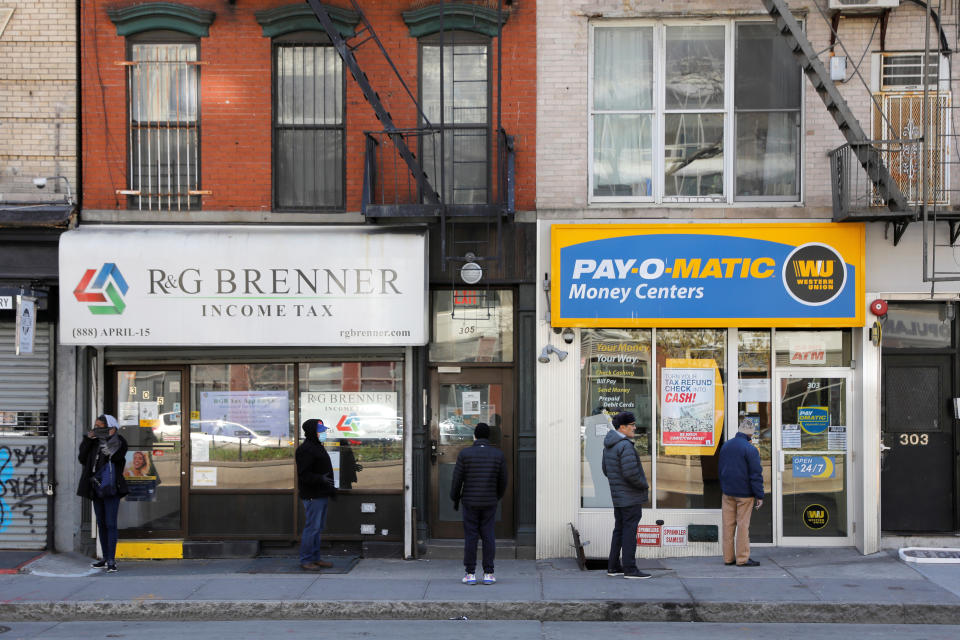Millions of unbanked Americans face longer wait for CARES Act checks
Americans without a checking or savings account may have to wait longer for Congress’s emergency relief checks. To speed up disbursement, the Federal Deposit Insurance Corporation is urging the country’s 8.4 million unbanked households to open bank accounts.
For those with bank accounts, the Internal Revenue Service is issuing the up-to-$1,200 payments electronically through the direct deposit as provided in a taxpayer’s most recent filing. But those without bank accounts will need to wait for physical checks to come through the mail.
“Having a bank account will mean consumers can get their funds more quickly and more safely,” said Leonard Chanin, deputy to the chairman of the FDIC.
The Economic Impact Payments are a key part of the Coronavirus Aid, Relief, and Economic Security (CARES) Act passed in late March. In total, about $290 billion will be disbursed to households and individuals.
‘The last mile’ problem for the IRS
As of May 8, the IRS has doled out over 127 million payments totaling $217 billion. But the quarter of the appropriated funds still awaiting disbursal could be a “last mile” problem for the IRS.

Those who do not have a bank account are likely still waiting for a paper check to arrive in the mailbox. Per the government’s timetable, the IRS has only begun sending those checks out this week.
A 2017 FDIC survey estimated that about 6.5% of U.S. households, or 8.4 million households, did not have a checking or savings account, meaning they are “unbanked.”
More importantly, demographic groups more likely to be adversely affected by the COVID-19 crisis appear to also have higher rates of unbanked households. That means a longer waiting period for the much-needed Economic Impact Payment check for lower-income, black and Hispanic, and less-educated households.
Chanin told Yahoo Finance that those waiting for checks can easily open an account online and set up a direct deposit through the IRS website to speed up the process. The FDIC also has its own resource for finding banks that allow depositors to open accounts online.
“Many of those accounts may have minimum balance or zero balance requirements, so you don’t have to have funds to actually open accounts,” Chanin said.
Opening up a bank account not only helps avoid hefty fees incurred at a check cashing store, but offers insurance if the bank is an FDIC member.
The FDIC insures up to $250,000 in funds per depositor.
Brian Cheung is a reporter covering the Fed, economics, and banking for Yahoo Finance. You can follow him on Twitter @bcheungz.
Dallas Fed's Kaplan expects 'substantial number' of bankruptcies amid oil crunch
Buffett: FDIC would have made Great Depression a 'much different experience'
Hotels eye Fed’s Main Street loans as occupancy rates remain low
El-Erian: Fed is tangled in a 'spaghetti bowl' of credit risk
A glossary of the Federal Reserve's full arsenal of 'bazookas'
Read the latest financial and business news from Yahoo Finance
Follow Yahoo Finance on Twitter, Facebook, Instagram, Flipboard, SmartNews, LinkedIn, YouTube, and reddit.
